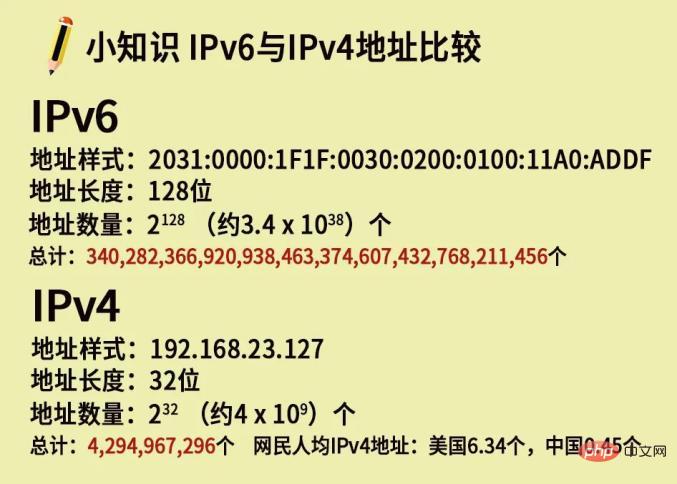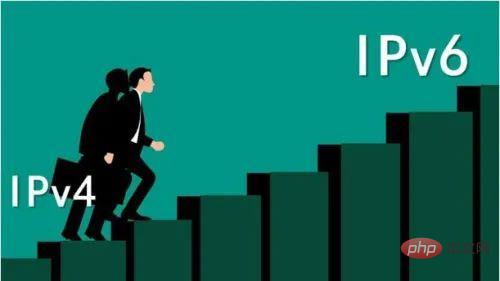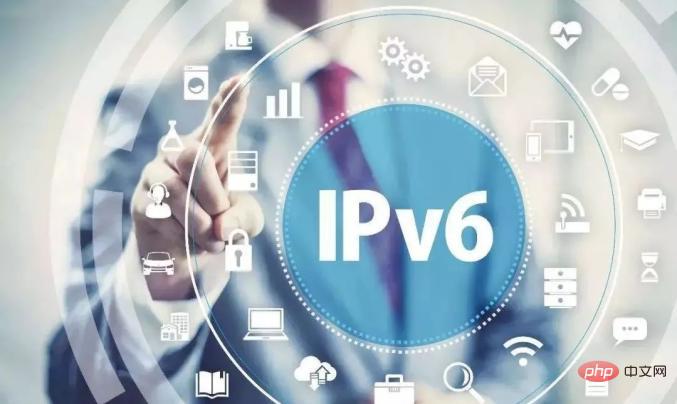
IP is the abbreviation of Internet Protocol (Internet Protocol), and ipv6 is the 6th version of Internet Protocol (IP Protocol). It is a globally recognized next-generation Internet business application solution and is the international standardization organization IETF. The next-generation Internet protocol version developed to solve the exhaustion of IPv4 addresses can provide massive network address resources and broad space for innovation. Its number of addresses is said to be able to code an address for every grain of sand in the world.

The operating environment of this tutorial: Windows 7 system, Dell G3 computer.
IP is the abbreviation of Internet Protocol. IP addresses are generated according to the rules of the IP protocol. IP addresses are the addresses of terminals such as mobile phones and computers on the Internet. They are the unique identities of terminals in cyberspace.
IPv6 is the abbreviation of Internet Protocol Version 6. It is the next generation IP protocol designed by the Internet Engineering Task Force (IETF) to replace IPv4. Its number of addresses is said to be the largest in the world. Every grain of sand in the world is encoded with an address.
IPv6 is a globally recognized next-generation Internet commercial application solution. It is a next-generation Internet protocol version developed by the International Organization for Standardization IETF to solve the exhaustion of IPv4 addresses. It can provide massive network address resources and broad space for innovation. .
The biggest problem of IPv4 is the insufficient network address resources, which seriously restricts the application and development of the Internet. The use of IPv6 can not only solve the problem of the number of network address resources, but also solve the obstacles for multiple access devices to connect to the Internet.

#Why does the country vigorously promote IPv6?
The main reason is that the number of IPv4 addresses is insufficient. IPv4 has been used for more than 30 years so far. The early Internet was only designed for use by the U.S. military and did not take into account that it would become such a large global network. Especially after entering the 21st century, with the rapid popularization of computers, smartphones, smart wearable devices and various smart home appliances, more and more Internet devices are connected to the Internet, and the problem of IPv4 address exhaustion has become increasingly prominent.

IPv6 has obvious advantages over IPv4. For the country, large-scale deployment and application of IPv6 is an inevitable trend in the evolution and upgrading of the Internet. It is an important direction for network technology innovation and is The key support for the construction of a network power can effectively promote and enhance my country's international competitiveness in the next-generation Internet field and enhance my country's technological voice in the Internet field. For individuals, IPv6 can bring us faster data transmission speeds, more secure data transmission methods, and better privacy protection.
In 2017, the General Office of the Central Committee and the Office of the State Council issued the "Action Plan for Promoting the Large-Scale Deployment of Internet Protocol Version 6 (IPv6)", which accelerated the pace of upgrading my country's IPv6 from network infrastructure and application infrastructure. After three years After more than years of efforts, as of the end of April this year, the number of users in my country who have obtained IPv6 addresses has increased from 74 million in 2017 to 1.54 billion.

Although my country's IPv6 users and network scale have ranked among the top in the world, and IPv6 traffic and business carrying capacity have also been greatly improved, the proportion of IPv6 traffic is lower than that of the world's leading countries. There is still a big gap, and there are still problems such as the low concentration of IPv6 applied by commercial websites and the insufficient IPv6 support capabilities of home terminals. The next three years will be a critical stage for my country's IPv6 to move from "channel" to "open to traffic". Relevant national departments have issued documents such as the "Special Action Plan" to guide all parties in the industry to collaboratively deepen the large-scale deployment of IPv6 and make up for the shortcomings of my country's IPv6 development. Address board weaknesses, promote the continuous increase in IPv6 traffic scale, and accelerate the smooth evolution and upgrade of the Internet to IPv6.
How can individuals use IPv6?
The widespread application of IPv6 is a systematic project, involving all aspects. Generally speaking, it requires the network side (home broadband, 4G and 5G mobile networks, etc.), the application side (various APPs, various Websites, etc.) and user terminals (home routers, smartphones, smart home appliances, etc.) must be supported. If any node does not support it, we will not be able to enjoy IPv6 services. Currently, the network side basically supports it, and most applications also support it. In terms of terminals, it mainly depends on whether our home routers, personal mobile phones and other electronic products support IPv6. If you want to know whether your home router and mobile phone support IPv6, you can judge by visiting the manufacturer's official website to view the detailed parameters of the product. You can also log in to the "National IPv6 Development Monitoring Platform" and select "Terminal Ready" under the "Development Indicators" column to determine by model. Check whether your home router and LTE mobile terminal (mobile phone) support IPv6. In addition, when purchasing new mobile phones, home routers, tablets, various smart wearable devices, and various smart home appliances, you must choose products that support IPv6.
The comprehensive popularization of IPv6 is the general trend and represents the future development direction of the Internet. In the future, emerging fields such as 5G, Internet of Things, cloud computing, and autonomous driving will need IPv6 as support. With the rapid development of science and technology, IPv6 will eventually replace IPv4 and become the mainstream. I believe that through everyone's joint efforts, we will enter the new era of IPv6 faster and fully enjoy the more efficient and safer services brought by IPv6.
【Recommended related video tutorials: HTTP video tutorial】
The above is the detailed content of what is ipv6. For more information, please follow other related articles on the PHP Chinese website!




